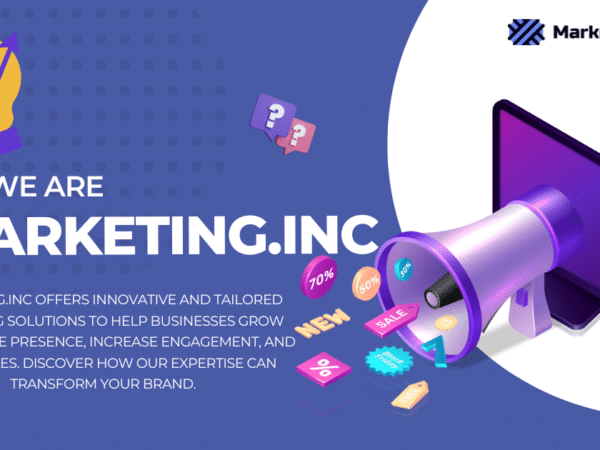Are you looking to build a robust, scalable web application with minimal effort? PHP frameworks might be the solution you need. These frameworks provide a structured environment for coding, offering pre-built modules, libraries, and tools that simplify common development tasks such as authentication, routing, and database management. By reducing the need for repetitive coding, PHP frameworks not only speed up the development process but also enhance the security and performance of web applications.
PHP frameworks cater to a wide range of development needs, from small-scale projects to enterprise-level applications. They follow the Model-View-Controller (MVC) architecture, which separates the business logic from the presentation layer, making the code more organized and maintainable. This separation is particularly useful for large teams, ensuring that different developers can work on the same project without stepping on each other’s toes.
Each PHP framework has its own set of strengths, whether it’s rapid prototyping, high performance, or extensive customization options. Some are designed to be lightweight and easy to learn, making them perfect for beginners or smaller projects. Others offer a more modular, component-based structure, allowing developers to build highly customized and scalable applications. Most frameworks also come with robust security features, helping protect against common vulnerabilities like SQL injection and cross-site scripting.
Here are some popular PHP frameworks that stand out for their unique features and capabilities.
- Laravel PHP Framework Overview:
Laravel is a leading PHP framework known for its elegant syntax, extensive features, and active developer community. It simplifies complex tasks while offering tools for rapid application development. Whether you’re a beginner or an experienced developer, Laravel provides an excellent environment for creating dynamic and customized web applications.
Key Highlights:
- Elegant and Feature-Rich: Offers built-in functions like user authentication and caching.
- Blade Templating Engine: Simplifies designing dynamic, reusable templates.
- Laravel Homestead: Provides a local web development environment using a virtual machine.
- Eloquent ORM: Enables intuitive database management and query handling.
- Extensive Package Ecosystem: Over 15,000 packages available through Packalyst.
- Active Community Support: Tutorials, forums, and Laravel Forge simplify deployment and learning.
- Laminas PHP Framework Overview:
Laminas, the successor to Zend Framework, is an object-oriented, modular PHP framework designed for developers who prefer a component-based, reusable approach. It allows you to select only the components you need, making it highly customizable and scalable for complex web applications. Laminas is particularly suitable for experienced developers focusing on enterprise-level projects.
Key Highlights:
- MVC Architecture: Provides a solid foundation for building structured applications.
- Component-Based: Use only the parts you need, enhancing flexibility.
- Mezzio Middleware: PSR-compliant, efficient handling of HTTP requests.
- API Tools: Simplifies building RESTful APIs with built-in validation and authorization.
- Enterprise-Ready: Follows strict development standards for secure, scalable apps.
Pros:
- Highly customizable with modular components.
- Strong emphasis on security.
- Reusability across projects.
- Integration with external libraries and databases.
Cons:
- Steep learning curve for beginners.
- Best suited for larger projects, adding complexity for smaller ones.
- CodeIgniter PHP Framework Overview:
CodeIgniter is a lightweight PHP framework, ideal for developers seeking high performance and simplicity. With a small footprint (less than 1.2 MB), it ensures fast loading speeds and is easy to deploy. It supports both MVC and non-MVC architecture, making it flexible for both large and small development teams.
Key Highlights:
- Lightweight and Fast: Minimal size for faster performance and low server impact.
- Flexible Architecture: Supports both MVC and non-MVC patterns.
- Built-in Security: Offers tools like CSRF protection, content security policies, and XSS filtering.
- Easy to Learn: Excellent documentation simplifies the learning curve.
Pros:
- Beginner-friendly and fast development.
- Flexible design patterns for different coding styles.
- Efficient handling of HTTP requests.
- Strong built-in security measures.
Cons:
- Limited built-in features compared to larger frameworks.
- Slower release cycle.
- Smaller ecosystem for plugins and extensions.
Why Choose CodeIgniter? Choose CodeIgniter if you need a fast, lightweight framework with built-in security tools and an easy-to-learn structure.
- CakePHP Framework Overview:
CakePHP is one of the original PHP MVC frameworks, known for its convention-over-configuration approach. This coding structure ensures uniformity, making collaboration easier, though it may take time to master. CakePHP comes with a wide array of components and a strong developer community, offering extensive support channels and paid assistance through CakeDC.
Key Highlights:
- Convention-Based Development: Enforces coding standards for streamlined collaboration.
- MVC Architecture: Organizes code effectively and promotes reusability.
- Broad Component Library: Provides hard-to-find features and built-in tools.
- Strong Community Support: Multiple channels like forums, Slack, and paid support available.
Pros:
- Encourages uniform code structure.
- Built-in security and easy testing capabilities.
- Active community and detailed documentation.
- Symfony Framework Overview:
Symfony is a powerful, flexible PHP framework known for its modular component system and advanced features. With over 50 reusable components, Symfony allows developers to build highly customized applications by selecting only the necessary modules. It uses the Twig template engine for efficient and concise templating, and includes a built-in debugging tool to ensure smooth project development.
Key Highlights:
- Modular Components: Choose from over 50 reusable PHP components.
- Twig Template Engine: Fast and concise for templating.
- Built-in Debugging Tools: Ensures functionality and smooth development.
- Extensive Documentation: Offers detailed guides covering over 20 topics.
Pros:
- Highly customizable and flexible.
- Excellent for large-scale enterprise applications.
- Mature ecosystem and a large, active developer community.
- Comprehensive testing support and robust documentation.
- Phalcon PHP Framework Overview:
Phalcon is a high-performance full-stack PHP framework, distinguished by its source code written in C. Despite its unique backend, developers interact with it using PHP, without needing to learn C. Phalcon is lightweight, fast, and employs the MVC architecture, allowing developers to add only the necessary modules and libraries for their projects.
Key Highlights:
- C-Based Architecture: Written in C for exceptional speed and performance.
- Lightweight Framework: Low server resource consumption.
- Modular Design: Add only the needed modules, keeping projects clutter-free.
- MVC Support: Streamlined architecture for efficient web development.
Pros:
- Outstanding performance due to C-based optimizations.
- Minimal server resource usage.
- Seamless integration with PHP libraries and other frameworks.
- Active and supportive developer community.
- Yii Framework Overview:
Yii is a high-performance, feature-rich PHP framework that excels in rapid web application development. Known for its customizable setup, it offers various extensions and tools like the Gii code generator for creating models, CRUD operations, and modules. Yii is equipped with built-in security features such as authentication controls and protection against SQL injection, making it secure for enterprise-level projects.
Key Highlights:
- Customizable Setup: Flexible for different project needs with extensive configuration options.
- Gii Code Generator: Simplifies CRUD operations and module creation.
- Built-in Security: Features include user authentication and SQL injection prevention.
- Extension Support: Wide range of extensions to accelerate development.
Pros:
- Fast performance with low overhead.
- Strong security features.
- Active community with extensive documentation.
- Efficient code generation for rapid development.
- Built-in support for unit and functional testing.
- Slim Framework Overview:
Slim is a lightweight, minimalist PHP micro-framework designed for building simple web applications and powerful RESTful APIs. Despite its simplicity, Slim offers advanced features like a fast HTTP router and middleware support, allowing developers to handle HTTP requests efficiently while adding flexibility through pre- and post-application code execution.
Key Highlights:
- Fast HTTP Router: Maps request methods and URIs to route callbacks, supporting parameter- and pattern-based URLs.
- Middleware Support: Allows code to run before and after the core application, adding layers for security and functionality.
- Client-Side HTTP Caching: Efficient handling of HTTP requests with built-in caching support.
Pros:
- Lightweight and simple for small web applications.
- Intuitive API and flexible routing system.
- Strong middleware support for request management and security.
- Ideal for building RESTful APIs.
Cons:
- Limited built-in features.
- Lacks an opinionated structure.
- Fewer advanced features compared to larger frameworks.
Why Choose Slim? Choose Slim for building small web apps, developing RESTful APIs, or when you need a simple yet powerful framework with excellent documentation and HTTP request handling capabilities.
- PHPixie Framework Overview:
PHPixie is a high-performance, lightweight PHP framework designed around the Hierarchical Model-View-Controller (HMVC) architecture. It emphasizes optimized web application development, using a bundle system to facilitate code reuse and sharing. With 100% unit-tested, independent components, PHPixie offers robust features while minimizing dependencies.
Key Highlights:
- HMVC Architecture: Supports hierarchical application structures for better code organization.
- Independent Components: Features unit-tested components like auth, HTTP, ORM, and validate, usable independently.
- Bundle System: Enables code reuse and sharing within the community.
- Optimized Performance: Designed for fast and efficient web applications.
Pros:
- Lightweight with fast performance.
- Easy integration with Object-Relational Mapping (ORM).
- Built-in security features and simplicity.
- Effective performance optimization.
Cons:
- Smaller ecosystem with fewer modules.
- Limited community support.
- Slower update frequency compared to more popular frameworks.
Why Choose PHPixie? Choose PHPixie for its intuitive design, advanced HMVC support, and impressive routing system, making it ideal for projects needing a lightweight, high-performance framework with MongoDB support.
- Fat-Free Framework Overview:
Fat-Free Framework (F3) is a minimalist PHP framework designed for simplicity and efficiency. With a compact codebase of just 65 KB, it allows developers to build lightweight applications without the need for extensive configuration. Its modular nature lets you include only the components you need, keeping your applications streamlined and efficient.
Key Highlights:
- Lightweight Codebase: Extremely small footprint for fast performance.
- Modular Framework: Use only the necessary components to keep apps lightweight.
- Optional Plugins: Includes tools for unit testing, templating, image processing, and secure session management.
- Database Compatibility: Supports multiple databases for flexible development.
Pros:
- Simple setup with minimal configuration.
- Extensible with a range of optional plugins.
- Lightweight and fast performance.
- Easy integration with various databases.
Cons:
- Limited built-in features compared to larger frameworks.
- Fewer community resources and extensions.
Why Choose Fat-Free Framework? Opt for Fat-Free Framework if you need a lightweight, easy-to-configure PHP framework with modular components and optional plugins for extended functionality. Ideal for developers seeking simplicity and speed in their web applications.
Conclusion
PHP frameworks play a crucial role in modern web development by providing a structured and efficient way to build dynamic, secure, and scalable applications. Each framework brings unique strengths, whether it’s rapid development, high performance, or enterprise-level features. By streamlining common tasks and offering pre-built modules and tools, they significantly reduce development time and enhance code quality.
Choosing the right PHP framework depends on your project requirements and development goals. Whether you need a lightweight solution for a small application or a robust, modular platform for complex projects, there’s a framework that fits your needs. Understanding these options helps you leverage the right tools to create efficient, maintainable, and high-performing applications.
In essence, PHP frameworks are indispensable for developers seeking to optimize their workflow and deliver high-quality web applications, making them a cornerstone of successful web development projects.








